Choosing the Best Bath Oils for a Relaxing Soak
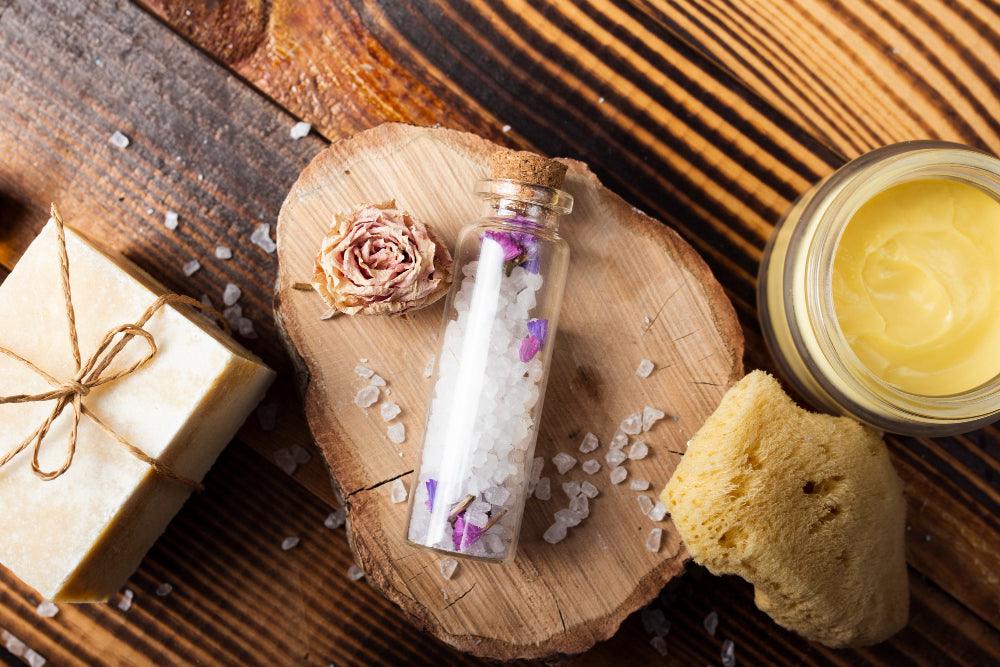
Related products
Choosing the Best Bath Oils for a Relaxing Soak
The Essence of Relaxation: Why Bath Oils Are a Must-Have
Slipping into a warm bath is undoubtedly one of life's little luxuries. But have you ever considered elevating the experience with the magic elixir that is bath oil? Bath oils are more than just a scented additive; they are the essence of relaxation and a must-have in your wellness routine. The therapeutic and skincare benefits they offer make bath oils the secret weapon for a truly indulgent bathing experience.
"Bath oils have been used for centuries to enrich the quality of the bath while delivering essential nutrients and moisture to the skin," explains Dr. Sarah Johnson, a skincare expert. So, let's delve into why bath oils should be a staple in your bath ritual.
Benefits of Adding Bath Oils to Your Routine
The benefits of bath oils extend well beyond their alluring fragrances. They are packed with a variety of essential oils, plant extracts, and vitamins that provide a host of advantages. These range from softening and nourishing the skin to offering mental and physical relief. Let's explore some of these benefits in detail.
Firstly, bath oils are fantastic moisturisers. "Because oils are lipophilic, they penetrate the skin's outer layer more easily compared to water-based lotions," states Dr. Emily Wilson. This ensures that your skin remains hydrated and soft even hours after your bath. Moreover, many bath oils contain ingredients like Vitamin E and fatty acids that are essential for skin health.
Secondly, bath oils offer therapeutic benefits. Ingredients like lavender, chamomile, and eucalyptus are known for their calming and soothing properties. "These oils interact with the limbic system in the brain to alleviate stress and boost mood," affirms Dr. Robert Baker, a specialist in aromatherapy.
Lastly, let's not forget the luxurious experience bath oils offer. The rich fragrances create an aromatherapeutic atmosphere, transforming your bathroom into a mini spa. "It's like having a spa day at home, but without the hefty price tag," says lifestyle expert Maria Stevens. For more natural options, visit the Natural Bath Products Collection, where you'll find products designed with gentle, skin-loving ingredients.
How Bath Oils Contribute to Relaxation and Skincare
Bath oils are not merely an indulgence; they are a pathway to enhanced well-being. The oils fuse with warm water to create a unique vehicle for relaxation and skin nourishment. "When dispersed in water, the oil provides a unique medium for delivering nutrients directly to the skin," informs Dr. Laura Smith, a dermatologist.
When it comes to relaxation, the ritual of pouring bath oil into warm water and watching it disperse can be meditative in itself. As you soak, the fragrant oils interact with your senses, facilitating relaxation. "Bathing in essential oils can significantly decrease cortisol levels, reducing the feeling of stress," notes Dr. David Turner, an endocrinologist. Products like Fenjal Classic Creme Bath Oil provide intense hydration, leaving your skin feeling luxuriously soft.
On the skincare front, the oils coat the skin, locking in moisture and nutrients. This process is particularly beneficial for people with dry or sensitive skin. "Bath oils can serve as a protective layer, helping to lock in moisture for extended periods," mentions Dr. Sarah Matthews, a consultant dermatologist.
Are Bath Oils Good for Your Skin?
Indeed, bath oils are tremendously beneficial for your skin. Unlike many other bath products that can be drying or even irritating, bath oils add a layer of moisture to your skin. "They are rich in essential fatty acids, which help to maintain the skin's lipid balance," says Dr. Caroline Scott, a dermatologist. Essential fatty acids such as omega-3 and omega-6 nourish the skin from within, making it feel soft, supple, and well-moisturised. For a truly relaxing soak, consider using oils like Olbas Bath Oil, known for its invigorating scent and stress-relieving properties.
Many bath oils are formulated with ingredients like Vitamin E, a powerful antioxidant known for its skin-protecting qualities. These ingredients not only nourish but also offer healing benefits for damaged or dry skin. "For those who struggle with conditions such as eczema or psoriasis, bath oils can offer soothing relief," notes Dr. Amy Williams, a skin specialist. However, it's always best to patch-test any new product if you have sensitive or reactive skin.
Can Bath Oils Replace Bubble Baths?
Bubble baths and bath oils serve different purposes, and whether one can replace the other largely depends on your individual needs and expectations from a bath. Bubble baths create a frothy, fun environment, but they often contain surfactants and fragrances that can dry out or irritate the skin. Bath oils, on the other hand, focus on skin nourishment and therapeutic benefits. "While bubble baths are designed for a sensory experience, bath oils aim to nourish your skin and relax your mind," asserts Dr. Sandra Clark, a renowned dermatologist. For those with sensitive skin, oils like Eucerin Atocontrol Daily Care Bath Shower Oil can offer a gentle yet effective way to nourish and soothe the skin, making them ideal for everyday use.
If your priority is skincare and relaxation, bath oils are the way to go. But if you're after the simple joy and nostalgia of a bubble bath, then bubble baths might be more suitable. Some people even like to combine both for a luxurious, multi-layered experience.
How Do Bath Oils Affect Mood?
The mood-enhancing effects of bath oils are predominantly due to their aromatic properties, which stimulate the senses and interact with the brain's limbic system. This is the emotional center of the brain, and it has a profound impact on mood and stress levels. "Certain essential oils like lavender and chamomile are proven to have calming effects, reducing anxiety and promoting relaxation," says Dr. Hannah Johnson, a psychologist specializing in aromatherapy.
It's not just about the scent, though. The very ritual of preparing a bath and the tactile sensation of warm water infused with oils can be a deeply relaxing experience. "Aromatherapy, when combined with the sensory experience of a warm bath, creates a holistic relaxation method that impacts both mind and body," notes Dr. Robert Lewis, a clinical psychologist.
Are There Allergens in Bath Oils?
Yes, some bath oils can contain potential allergens such as synthetic fragrances, certain essential oils, or nut-based carrier oils. "It's crucial to check the ingredient list thoroughly, especially if you have known skin sensitivities or allergies," advises Dr. Emma Thompson, a dermatologist. For those with sensitive skin or allergies, hypoallergenic or fragrance-free options are available. Always perform a patch test before fully immersing yourself in a bath oil to gauge how your skin reacts. Consider using bath oils like ESPA Signature Blends Aromatherapy Bath and Body Oil Collection to complement the soothing experience of a bubble bath.
If you're unsure, consult your dermatologist for tailored advice. Many brands also offer allergen-free formulas specifically designed to be gentle on the skin. These formulas often use minimal ingredients and avoid common allergens like soy, gluten, and artificial fragrances.
Can I Make My Own Bath Oils at Home?
Absolutely, making your own bath oils at home is not only feasible but also enjoyable. "Creating your own blend allows you to customise the oils to suit your skin type and personal preferences," says Dr. Sarah Williams, an expert in holistic health. Basic carrier oils like jojoba, almond, or grapeseed can be blended with your choice of essential oils for fragrance and additional benefits.
For instance, lavender essential oil can add calming properties, while eucalyptus can be invigorating. However, Dr. Williams notes, "it's essential to properly dilute essential oils in a carrier oil to avoid skin irritation or other adverse reactions."
Which Bath Oils Are Best for Stress Relief?
For stress relief, aromatherapeutic oils like lavender, chamomile, and rose are often recommended. "These oils contain compounds that have been shown to reduce cortisol levels and induce a state of relaxation," notes Dr. Julia Henderson, a psychologist and aromatherapy expert. You can find commercial blends formulated specifically for stress relief, often incorporating a mixture of these oils for a multi-faceted approach to relaxation.
If you're making your own, a blend of lavender and chamomile can be highly effective in reducing stress and promoting a peaceful state of mind. Always remember to properly dilute any essential oils in a carrier oil.
Can Bath Oils Help with Muscle Soreness?
The short answer is yes, some bath oils are formulated to aid in muscle recovery and relieve soreness. "Essential oils like eucalyptus, peppermint, and rosemary have analgesic and anti-inflammatory properties that can help soothe sore muscles," states Dr. Richard Adams, a physiotherapist. Many athletes and fitness enthusiasts use bath oils as a post-workout recovery tool to help alleviate muscle tension.
Whether you're an athlete or someone who suffers from chronic muscle soreness, incorporating bath oils designed to target this specific concern can offer significant relief. Just make sure to consult a healthcare professional for persistent or severe muscle pain, advises Dr. Adams.
How Much Bath Oil Should I Use?
The amount of bath oil to use can vary based on the product's concentration and your personal preferences. "Generally, a capful or two should suffice for a standard-sized bathtub," says Dr. Emily Clarke, a dermatologist. Overusing bath oil could make the bathtub slippery and may also lead to pore-clogging, so moderation is key.
If you're making your own blend at home, a ratio of about one ounce of carrier oil to a few drops of essential oil is generally safe and effective. Always read the product instructions or consult with a skincare expert if you're unsure about the appropriate amount to use.
Should I Apply Body Lotion After a Bath Oil Soak?
Applying body lotion after a bath oil soak can be a matter of personal preference and skin type. "For people with extremely dry skin, layering a body lotion can offer added hydration," notes Dr. Emily Clarke. However, if the bath oil is particularly rich and leaves your skin feeling adequately moisturised, you may skip the lotion.
If you decide to apply a body lotion, opt for a formula that complements the bath oil you've used. For instance, if you've used a lavender-scented bath oil, a lavender-infused body lotion can prolong the scent and relaxation benefits.
Are Bath Oils Safe for Children?
While some bath oils are formulated to be safe for children, it's always best to consult with a paediatrician before introducing new skincare products into your child's routine. "Kids have more sensitive skin than adults, making them more susceptible to irritations or allergic reactions," cautions Dr. Sarah Williams. Always look for bath oils specifically formulated for children or those labelled as hypoallergenic and free from artificial fragrances and dyes.
Remember to use a smaller amount for children and always supervise them during bath time to ensure safety, especially since oils can make the tub slippery.
Can I Use Bath Oils with a Skin Condition Like Eczema?
People with skin conditions such as eczema need to be cautious when selecting bath oils. "Some oils can actually exacerbate skin conditions, so it's essential to choose a product that's suitable for sensitive skin," advises Dr. Emily Clarke. Always look for oils that are labelled as hypoallergenic and free from irritants like artificial fragrances or dyes. For eczema sufferers, using products like QV Bath Oil can help maintain hydration and relieve dry skin.
Products containing ingredients like chamomile or calendula are known for their anti-inflammatory properties and may be beneficial for those with skin conditions. However, always perform a patch test first or consult your dermatologist for a tailored recommendation.
People Also Ask
Where Can I Purchase High-Quality Bath Oils?
Finding high-quality bath oils is easier than ever with the advent of online retail and specialty shops. "High-end department stores often carry luxury bath oil lines, offering consumers the opportunity to test before purchase," suggests Dr. Rachel Knight, a dermatologist. Many health food stores and pharmacies also stock natural and organic options.
Online platforms offer the broadest range of choices, including international and indie brands. Websites such as Cult Beauty, Feel Unique, and even Amazon have dedicated sections for bath and body care, including bath oils. Just remember to read customer reviews and research ingredients to ensure you're purchasing a high-quality product.
Are There Any Seasonal or Limited-Edition Bath Oils?
Yes, many brands release seasonal or limited-edition bath oils, often to coincide with holidays or changes in weather. "Seasonal oils might include ingredients that evoke a particular time of year, like pumpkin spice in autumn or peppermint in winter," says Dr. Emily Clarke. These limited editions offer a unique sensory experience and can be highly sought after by bath enthusiasts.
However, do note that limited-edition doesn't always equate to better quality. Always review the ingredients and make sure they are suitable for your skin type, especially if you have sensitive skin or specific skincare concerns.
Are There Online Communities for Bath Enthusiasts?
Indeed, the internet has provided a haven for every interest group, bath enthusiasts included. Websites like Reddit and dedicated Instagram hashtags feature discussions, reviews, and tips on how to make the most of your bath time. "Online communities can be an excellent resource for discovering new products and techniques, but always remember to exercise personal judgement and consult professionals for skincare advice," advises Dr. Rachel Knight.
These online spaces offer the added advantage of peer reviews and real-time feedback from fellow bath oil users. Whether you're a newbie or an aficionado, these communities offer a wealth of information and are open to everyone.
A Guide to Bath Oil Ingredients: What to Look For

Essential Oils for Relaxation
Essential oils play a crucial role in the overall bath experience, particularly when it comes to inducing relaxation. Lavender, chamomile, and ylang-ylang are some of the more popular choices in this category. "Lavender oil has been studied for its potential to reduce anxiety and improve mood," says Dr. Sarah Thompson, a clinical aromatherapist. These oils contain natural compounds that interact with the body's limbic system, responsible for emotions and memories.
For example, eucalyptus essential oil is known for its refreshing and invigorating aroma, and it can help clear the mind. On the other hand, rose essential oil is often linked to feelings of love and emotional well-being. By understanding the specific benefits of each essential oil, you can customise your bath to suit your current emotional needs.
Carrier Oils for Moisturising the Skin
While essential oils provide the fragrance and mood-enhancing benefits, carrier oils do the heavy lifting in terms of moisturising the skin. Carrier oils like coconut oil, jojoba oil, and sweet almond oil are rich in fatty acids and nutrients. "These oils serve as a base for essential oils and provide the skin with essential nutrients and moisture," Dr. Emily Clarke elaborates.
For example, sweet almond oil is packed with vitamin E, known for its skin-healing properties. Coconut oil, on the other hand, offers a light texture and quick absorption, making it suitable for those who dislike a greasy after-feel. Always opt for cold-pressed, organic carrier oils to ensure you're getting the highest quality.
Additional Ingredients for Skin Health and Fragrance
Beyond essential and carrier oils, many bath oils incorporate additional ingredients for skin health and fragrance. These might include vitamin E, botanical extracts, and even sea salts. "Botanical extracts like calendula or chamomile offer anti-inflammatory benefits, perfect for those with sensitive skin," states Dr. Sarah Thompson.
Let's not forget ingredients that enhance the aroma of your bath oil. Natural options such as rose petals or jasmine buds not only make the product visually appealing but can also intensify the overall sensory experience. Some brands even add a dash of natural fruit extracts to their bath oils for an extra zing.
The Art of Bathing: How to Use Bath Oils for the Ultimate Experience
Steps to Prepare Your Bath
Using bath oils can transform a simple soak into a luxurious, spa-like experience. But it's not as straightforward as dumping a bottle into the tub; preparation is key. First, fill your tub with warm water—not too hot, as very hot water can strip the skin of its natural oils. A good temperature range is between 37-39°C (98.6-102.2°F). "The optimal bath temperature for absorption of essential oils through the skin is around 37-38°C," advises Dr. Victoria Adams.
Next, add your chosen bath oil while the water is running to help it disperse more evenly. The amount you'll need varies depending on the product, but generally, 10-20 drops should suffice. "The quantity of oil used can significantly affect the outcome; too little and the effects might not be felt, too much and you might find yourself slipping around in the tub," says Dr. Adams.
Before entering the tub, swirl the water around to distribute the oil. Keep a towel nearby for when you're ready to step out. Now you're all set for your luxurious soak!
Tips for Maximizing Relaxation and Skincare Benefits
Using bath oils can be more than just a quick soak; it can be an event that maximises both relaxation and skincare benefits. One way to enhance relaxation is by creating an ambiance—think dimmed lights, candles, and soft, calming music. "Aromatherapy candles can complement the essential oils in the bath for a multi-sensory experience," suggests Dr. Emily Martin.
If skincare is a priority, consider exfoliating before your bath. This will remove dead skin cells and improve the absorption of oils. "An exfoliating mitt can work wonders for prepping the skin before a bath oil soak," says Dr. James Ford.
During your bath, make it a point to inhale deeply, taking in the aromatic vapours of the essential oils. This can activate the olfactory system and contribute to relaxation. "Inhaling the aroma of certain essential oils like lavender or chamomile can stimulate the release of neurotransmitters like serotonin or dopamine, aiding in relaxation," informs Dr. Sarah Gilbert.
Finally, after you've soaked for a good 15 to 20 minutes, emerge from the tub slowly and pat yourself dry with a towel. Resist the urge to rinse off; you'll want those nourishing oils to stay on your skin for as long as possible. "The immediate period post-bath is critical for locking in moisture. Consider applying a hydrating lotion to seal in the benefits," recommends Dr. Gilbert.
By meticulously preparing your bath and using oils in a thoughtful manner, you can maximise both relaxation and skincare benefits. So go ahead, elevate your bathing experience to an art form.
Considerations for Different Skin Types

Best Bath Oils for Sensitive Skin
For those with sensitive skin, the choices of bath oils may seem limited, but this is far from the truth. The key is to look for oils that have minimal ingredients and are free from artificial fragrances, colours, or preservatives. Sensitive skin often responds well to oils like chamomile, lavender, and calendula, which are known for their soothing properties. "When selecting oils for sensitive skin, focus on oils with a smaller molecular size as they're less likely to irritate the skin," suggests Dr. Karen Hughes.
A good recommendation for sensitive skin is an oat-based bath oil, which is often hypoallergenic and soothing. Almond oil is another excellent carrier oil that is gentle on sensitive skin. "The blend of oat and almond oils has proven effective in reducing skin inflammation in various dermatological studies," states Dr. Michelle Peterson.
Before using a new product, always conduct a patch test to ensure that it won't cause irritation. Apply a small amount to a discreet area of skin and monitor for 24 hours for any adverse reactions. "A patch test is the gold standard for anyone with skin sensitivities," affirms Dr. Peterson.
Options for Oily or Acne-Prone Skin
Contrary to popular belief, oily or acne-prone skin can also benefit from bath oils. However, the choice of oil is crucial. Lightweight, non-comedogenic oils like jojoba, grapeseed, and tea tree oils are the best options. "Oily skin requires oils that can regulate sebum production. Jojoba oil closely mimics the skin's natural oils, making it an excellent option," explains Dr. William Lewis.
If acne is a concern, look for oils infused with antibacterial and anti-inflammatory essential oils like tea tree or lavender. "Tea tree oil has long been considered a natural remedy for acne due to its antibacterial properties," notes Dr. Janet Reynolds.
Also, it might be helpful to include some bath salts like Epsom salts that are known to absorb excess oils and help detoxify the skin. "Bath salts can work in tandem with bath oils to provide a balanced skin environment," says Dr. Lewis.
Just like with sensitive skin, it's crucial for those with oily or acne-prone skin to do a patch test before fully immersing in an oil bath. "Acne-prone skin can react unpredictably to new products. Always err on the side of caution," advises Dr. Reynolds.
Recently Searched
Lavender Bath Oils
If you've been on the hunt for lavender bath oils, you're not alone. Lavender oil has been revered for centuries for its calming and soothing properties. "Lavender has been clinically proven to improve sleep quality and reduce anxiety, making it a popular choice for those looking to unwind in a bath," says Dr. Sarah Williams.
From boutique brands to more accessible options, lavender bath oils are available in a wide range of formulations. Some even combine lavender with other relaxing oils like chamomile or rosemary for an enhanced experience. However, if you're pregnant or nursing, consult with your healthcare provider before using lavender or any other essential oils.
Hypoallergenic Bath Oils
For those with sensitive skin or allergy concerns, hypoallergenic bath oils are a safe bet. These products are typically formulated without common allergens such as parabens, sulfates, and synthetic fragrances. "Hypoallergenic bath oils are rigorously tested to ensure they minimise the risk of allergic reactions," notes Dr. Helen Carter.
Popular hypoallergenic bath oils often feature ingredients like oat extract, almond oil, and jojoba oil. "Oats have natural anti-inflammatory properties, making them ideal for sensitive skin," says Dr. Carter.
Bath Oils for Pregnancy
If you're expecting, a relaxing bath can be a great way to unwind, but it's essential to be cautious about the products you use. Many oils contain essential oils that may not be recommended during pregnancy. "Lavender, ylang-ylang, and chamomile are generally considered safe during the second and third trimesters, but always consult your healthcare provider before using any new products," advises Dr. Emily Smith.
For an extra layer of safety, look for bath oils specifically formulated for pregnancy. These products typically avoid essential oils that could be problematic and focus on gentle, nourishing ingredients like coconut oil and Vitamin E.
Bath Oils for Men
Who says bath oils are just for women? More men are embracing the benefits of a relaxing soak. Bath oils formulated for men often include earthier scents like sandalwood, cedar, and bergamot. "Men's skin is generally thicker and produces more sebum, so bath oils for men are usually formulated differently to address these needs," says Dr. Mark Johnson.
Some options are even tailored to aid muscle recovery, featuring ingredients like eucalyptus and rosemary. "Eucalyptus oil has been shown to improve blood circulation and can be beneficial after intense physical activity," mentions Dr. Johnson.
Whether you're male or female, expecting a child, or dealing with skin sensitivities, there's a bath oil out there designed to meet your specific needs.
Bath Oil vs Bath Salt
The debate between bath oil and bath salt can be traced back to personal preference and specific skincare needs. While bath oils are renowned for their moisturising capabilities, "Bath salts can provide mineral-rich properties that may be beneficial for detoxification and soothing muscles," points out Dr. Lucy Green.
If your primary goal is hydration and battling dry skin, oils may be your best bet. On the other hand, salts can be more versatile when it comes to addressing issues like sore muscles and body aches. Some people even enjoy combining both for a luxurious bath experience. However, exercise caution when mixing products to avoid skin irritation.
Bath Oil Beads
Bath oil beads offer a novel and fun way to enjoy the benefits of bath oils. These small, gel-like beads dissolve in warm water, releasing their nourishing oils. "The advantage of bath oil beads is the convenience. They offer a pre-measured amount of oil, which helps to avoid overuse," explains Dr. Fiona Roberts.
Popular among both adults and children, these beads often come in various shapes and scents, making bath time a truly engaging experience. However, it's advisable to read the ingredients carefully, especially if you have sensitive skin or allergies.
Dermatologist-Recommended Bath Oils
For those with skin conditions like eczema, psoriasis, or extreme dryness, dermatologist-recommended bath oils can be a lifesaver. "Products endorsed by dermatologists usually undergo rigorous testing to ensure they are effective and safe for sensitive skin," says Dr. Rachel Adams.
Typical ingredients include ceramides, which help restore the skin's natural barrier, and colloidal oatmeal for its anti-inflammatory properties. These products are often fragrance-free to reduce the chance of irritation.
Vegan Bath Oils
For the environmentally-conscious or those adhering to a vegan lifestyle, vegan bath oils offer a guilt-free bathing experience. "Vegan bath oils avoid any animal-derived ingredients and are often formulated with organic and sustainably-sourced oils," states Dr. Sarah Williams.
Popular vegan bath oils may include coconut oil, argan oil, and essential oils like lavender or eucalyptus for fragrance. It's also common to find vegan bath oils that are cruelty-free, meaning they're not tested on animals.
No matter what your specific needs or preferences may be, the realm of bath oils offers a myriad of options to cater to them. The key is to choose wisely and consult with professionals like dermatologists for any specific skin concerns.
Bath Oil Gift Sets
When it comes to gifting, bath oil gift sets often emerge as a thoughtful and luxurious choice. "A good bath oil gift set can elevate a simple bath into a spa-like experience," notes Dr. Caroline Thompson. These sets typically include a range of scents and oil types, sometimes even accompanied by other bath accessories like loofahs or candles.
They are particularly popular during the holiday season, but also make excellent birthday, anniversary, or 'just-because' gifts. When selecting a gift set, consider the recipient's skin type and scent preferences. It may also be worth seeking out sets with reusable or recyclable packaging to minimise environmental impact.
Bath Oils on Sale
Who doesn't love a good deal? Discounts on bath oils can be an excellent opportunity to try out premium brands without breaking the bank. "It's always advisable to check the expiry dates and ingredient lists, especially when purchasing items on sale," warns Dr. Emily Taylor.
Look for sales during events like Black Friday, Boxing Day, or end-of-season sales for the best deals. Signing up for newsletters from your favourite brands can also give you access to exclusive discounts and alerts about upcoming sales.
Bath Oil Recipes
If you have a penchant for DIY projects, making your own bath oils can be a rewarding experience. "The advantages of homemade bath oils include the ability to customise the scent and oil blend to suit your specific needs," says Dr. Jonathan Clarke.
Common ingredients in DIY bath oil recipes include carrier oils like almond or jojoba, combined with essential oils for fragrance and additional benefits. Some recipes also incorporate dried flowers or herbs for an extra touch of luxury. However, always remember to perform a patch test to rule out any allergic reactions when trying new ingredients.
Luxury Bath Products
For those looking to indulge, luxury bath products offer an unparalleled experience. These often feature exotic ingredients, intricate packaging, and sometimes even real gold or silver flakes for the ultimate in bath-time opulence. "If you're considering a luxury bath product, it's often the attention to detail that sets these items apart," notes Dr. Sophie Ward.
While undoubtedly pricier, such products make for special treats or gifts. However, if you have sensitive or problematic skin, consult your dermatologist before trying out new, potentially potent ingredients.
Frequently Asked Questions (FAQ)
What are the primary benefits of using bath oils?
Bath oils primarily offer moisturisation, relaxation, and aromatic benefits. They can help to lock in moisture, soften the skin, and create a spa-like atmosphere. "Bath oils can provide a multi-sensory experience that combines skincare with well-being," says Dr. Elizabeth Johnson.
Are bath oils good for all skin types?
While bath oils are generally suitable for most skin types, those with sensitive or problematic skin should consult a dermatologist. "For people with eczema or psoriasis, it's best to check the ingredients and perhaps opt for an oil designed for sensitive skin," recommends Dr. Oliver Smith.
How much bath oil should I use per bath?
Generally, a capful or two is sufficient, but always follow the manufacturer's instructions. Dr. Anna Williams advises, "Overuse can make the bathtub slippery and may irritate the skin, so moderation is key."
Can I use bath oils every day?
While they are safe for regular use, overuse can potentially lead to oily skin or mild irritation. "If you're using them daily, choose a mild oil with natural ingredients," suggests Dr. Mary Lee.
Can I mix bath oils with other bath products like salts or bubble baths?
Yes, you can mix bath oils with other products, but exercise caution. "Make sure to read the labels of both products to ensure they're compatible and won't react with each other," advises Dr. Rebecca Adams.
Is it safe to use bath oils during pregnancy?
It's crucial to consult with your healthcare provider during pregnancy. "Some essential oils are not recommended for pregnant women. Always check with your doctor first," says Dr. Susan Mitchell.
Can children use bath oils?
Children can use bath oils, but it's best to opt for products formulated for sensitive skin and to consult a paediatrician. "Always perform a patch test first to ensure there's no allergic reaction," recommends Dr. Katherine Lewis.
Remember that everyone's skin is different. What works wonders for one person may not be suitable for another. Always consult healthcare providers for personalised advice.
How do I store bath oils?
Proper storage is essential for preserving the efficacy and aroma of bath oils. "Store bath oils in a cool, dark place away from direct sunlight. This will ensure that the active ingredients and essential oils remain potent," says Dr. Sarah Edwards. Ensure the bottle is tightly capped to prevent contamination and spoilage.
Can bath oils help with specific skin conditions like eczema?
While bath oils can provide moisture and relief for dry skin, they are not a cure for skin conditions like eczema. "Opt for bath oils with soothing ingredients like chamomile or calendula if you have skin conditions. However, always consult your dermatologist for tailored advice," recommends Dr. Alan Thomas.
Are there vegan or organic options for bath oils?
Yes, many brands offer vegan or organic bath oils. "When opting for vegan or organic options, look for certifications on the packaging to ensure the product's authenticity," advises Dr. Emma Roberts. Brands like Neom Organics and Dr. Hauschka offer vegan and organic options.
Can bath oils stain my bathtub?
Bath oils themselves usually don't stain bathtubs, but be cautious with oils that contain artificial colours. "Always read the label, and if you're concerned, you can always do a spot test on a small area of the bathtub," suggests Dr. Laura Harrison.
What are some trusted brands for bath oils?
Trusted brands can vary depending on your geographic location and skin needs. However, some universally recognised brands include Aromatherapy Associates, Jo Malone, and Dr. Hauschka. "It's crucial to read reviews and perhaps start with a smaller bottle to see if it suits your needs," recommends Dr. Brian Wilson.
Always remember that bath oils are a wonderful addition to your self-care routine, but they are not a replacement for medical advice for specific skin conditions or other health needs.





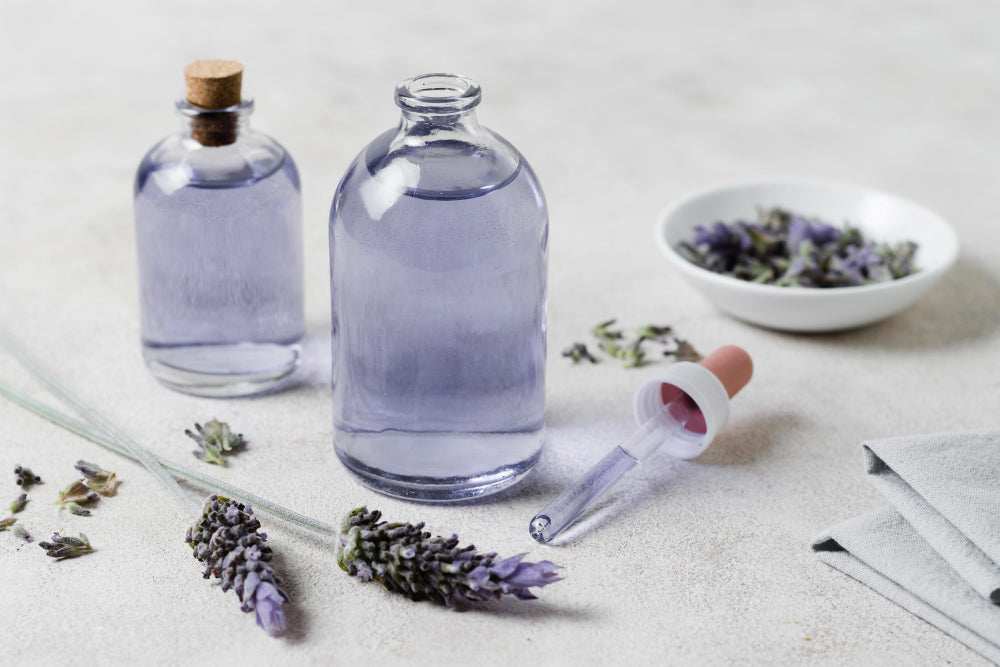



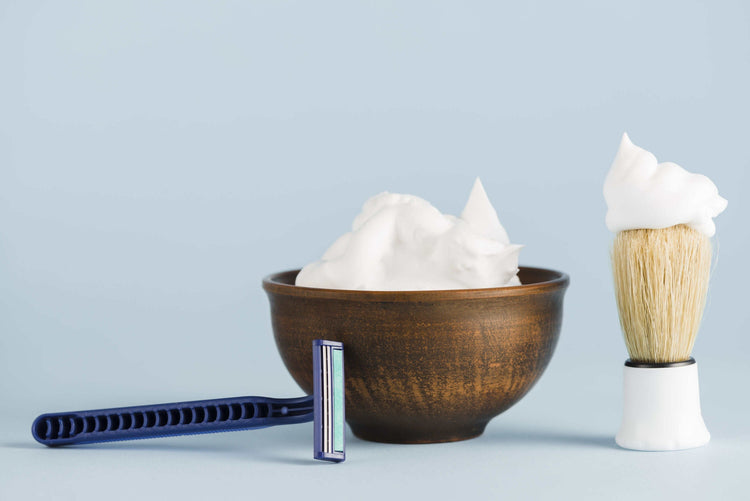

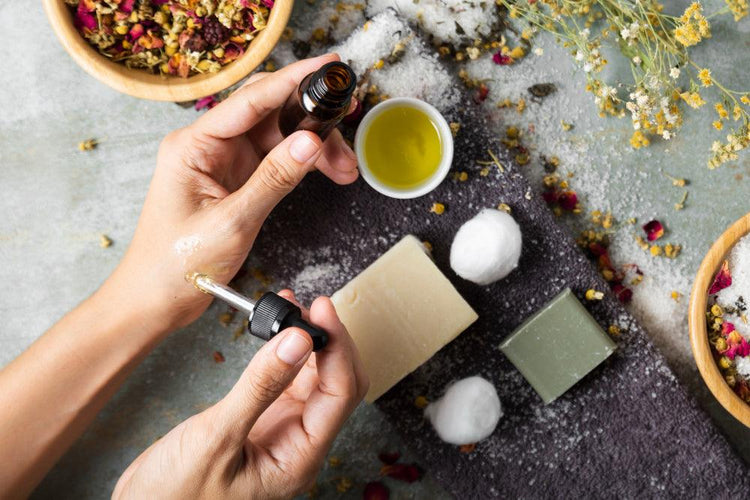


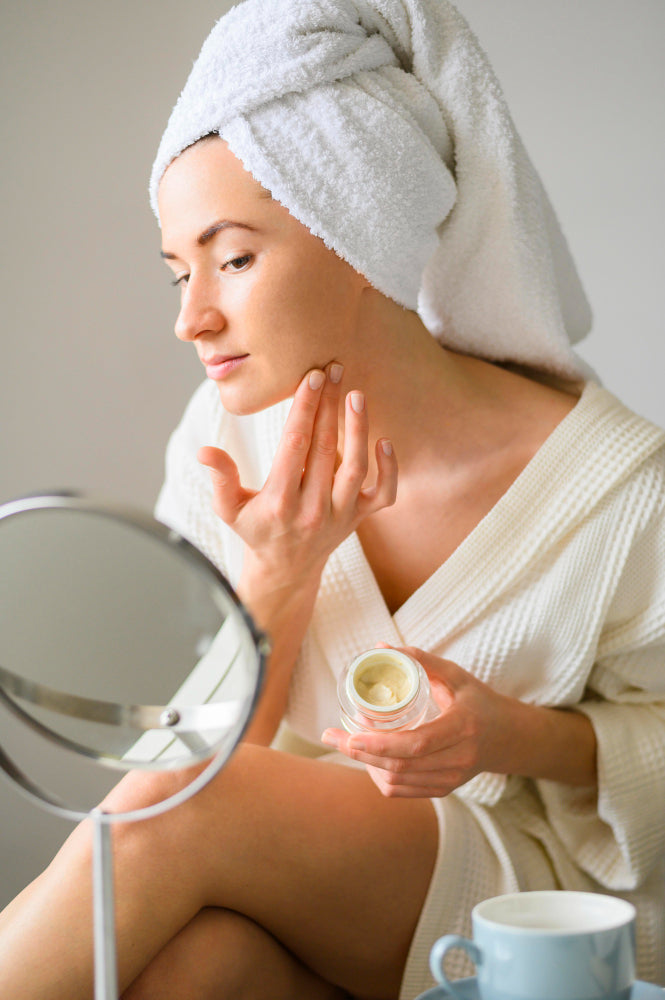
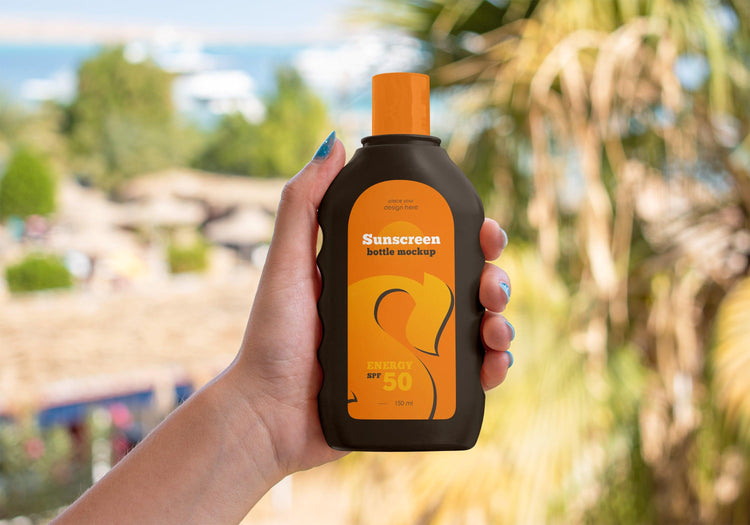
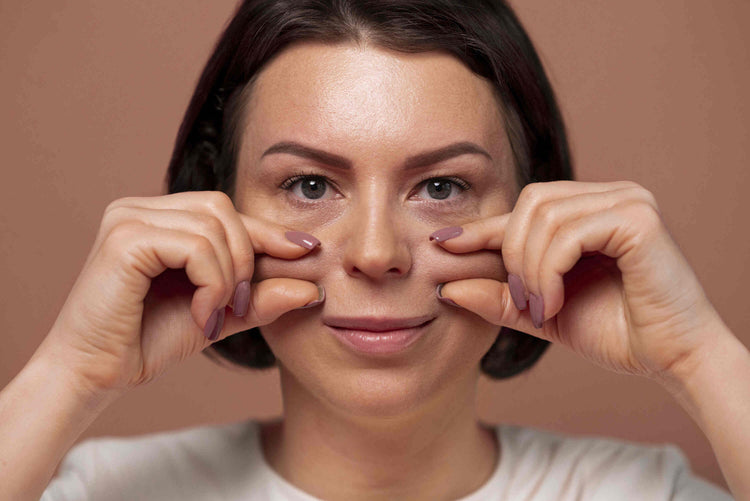
 Rated Excellent by 26,523+ Reviews
Rated Excellent by 26,523+ Reviews